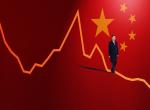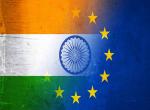As the European capitals prepare for the former Republican President Donald Trump’s return to the White House, a significant geopolitical and geostrategic shift is inevitable. Trump’s policies could create potential upheaval across the Atlantic and radically reshape transatlantic security, while revisiting their stance on support for Ukraine and engagement in the NATO. Further expected challenges include an adverse impact on economic and trade relations through possible disruptions in global supply chains, tariff barriers and trade wars, and heightened forex volatility. Although the United States is likely to invest largely in defence capabilities to strengthen deterrence and encourage its European and Asian allies to increase their contributions to defence, European leaders must take pre-emptive measures to safeguard their core interests in context of their defence and security policy.
With a diverse range of perspectives from across the Atlantic, Europe has been a mixed bag when it comes to how Trump’s victory is being seen by the European leaders. In the backdrop of rise of right-wing in European politics, European hard-right leaders like the Hungarian Prime Minister Viktor Orbán and Italy’s Giorgia Meloni would be celebrating Donald Trump’s election victory, whereas many other European leaders would see the return of Trump as trouble in the road ahead in security, trade, and climate change. French President Emmanuel Macron’s statement urging Europe to grow some teeth or risk being eaten by the world’s “carnivore” post Trump’s victory is a clear indication of the concerns of the upcoming policies by the President-elect.[1] Ukraine, facing major political challenges, had also been widely fearing a Trump victory, over what it could mean in the context of future US support.
With Europe in a relative economic decline since the last two decades, the global influence of the European Union has waned over the years. Europe’s largest economy, Germany, has seen a collapse in its traffic-light coalition government and just when the EU needs a decisive leadership, a political vacuum in Berlin has been created. In addition, Europe is challenged with an ageing and declining population. Further, the digitisation process has been relatively slower in Europe, such that only 4 of the world’s top 50 tech companies are European. With a backdrop of global power competition between the US and China, coupled with Europe’s declining growth rates and weak technology, integration within the EU has come under stress with political and social divisions between Member States. Following the Russian invasion of Ukraine, the continent faces the challenge of severely disrupted European gas markets. Europe is also confronted with challenges of instability in its neighbourhood with two wars in its periphery, migration, terrorism, bringing in further political unrest and faltering its global influence.
Ramifications on Ukrainian Security
With close to a thousand days behind since the onset of the Russian war on Ukraine, Ukrainian security has been under tremendous pressure. With the Biden administration claiming that the unprovoked war of aggression is not just an assault on Ukrainian freedom and liberty but also a direct attack on the global world order[2], the US is currently Ukraine’s largest military supporter and second-largest financial supporter. Trump with his election slogan “Trump will fix it” has promised to end the war in Ukraine within 24 hours of taking power. It is unclear as to how Trump would accelerate the end of the war or how he would facilitate a negotiation between the two actors. It remains evident that while the Harris administration policy towards the conflict remained that of continuation of her predecessor Biden’s policies of sanctions on Russia and humanitarian support to Ukraine, meanwhile, Trump would reverse much of that policy, curtailing the US support for Kyiv, heavily compromising Ukrainian security.
At a time when the region around Europe is burning with the ongoing war in Ukraine as well as the Israel-Hamas conflict in the Middle East, not only is the attention of European leaders occupied, but a large amount of Western military and other resources are also being drained. Trump’s promises are being taken seriously in the European capitals and any amount of withdrawal of US support to Ukraine will need to be compensated by the Europeans. Furthermore, if Trump were to sideline EU in the peace talk with Ukraine, European security is likely to be rendered fragile as Europe is more directly impacted by the conflict. [3]
Trump and NATO
Meanwhile, the war has brought in a resurgence of NATO solidarity, with a renewed focus on collective territorial defence and a reinforcement of the role of the US as the security provider of the European continent. With the extrapolation of the trends from Trump’s first term, it is expected that Trump may slash US defence spending in NATO and even withdraw from NATO altogether. Although Trump has clarified in interviews that he would 100% remain a part of the NATO, however, only as long as the European nations “play fair” and “do not take advantage of American support”. The Vice-President elect J. D. Vance has reaffirmed his commitment to NATO, but also recognised that “NATO is not just a welfare client, and it should be a real alliance.”[4]
Trump has consistently questioned US involvement in NATO and has also been critical towards the US commitment to Article 5 of NATO, the principle of collective defence. The Trump administration is also likely to be against any further enlargement of the NATO as they see additional allies as an increase in burden to the US. Trump reducing US presence and involvement in NATO could further impact European as well as Ukrainian security under the pretext of further Russian aggression.
Furthermore, Trump has persistently criticised Europe, especially Germany, for their low defence spending. Justifying this, NATO Secretary-General Jens Stoltenberg has acknowledged that Trump was right to press the Europeans on their defence spending during his first term. By promoting a ‘Dormant NATO’ strategy, the Trump administration is likely to withdraw most of the US troops out of Europe, significantly weakening the American pillar of the alliance and leaving the continent to be their own security provider and the Union to be their primary security actor, with the US only playing a supporting role. As a result of the criticism and possible reduction in US engagement, there could be an expectation of rapid increase in European military spending. As agreed, in the Vilnius NATO Summit of 2023, the allies would be expected to exceed the 2 percent defence spending commitment.[5]
Impact on European Security Cooperation
As the military security of Europe is largely dependent on the United States, an upcoming confrontational Trump administration would create a complicated Europe on security matters. With the Trump administration likely to reduce the number of conventional US forces in Europe, limiting the transatlantic cooperation on areas of security such as surveillance, intelligence, cybersecurity, and even nuclear deterrence, the European nations need to strengthen their military and defence capabilities under immense pressure. They need to assemble a comprehensive military support package, necessitating a need for European strategic autonomy.
The European leadership is presently weak with Germany hesitant to assume a large proportion of security responsibility in the region, or to reduce their energy dependence on Russia. At the same time, France is in the pursuit of a more autonomous geopolitical discourse. In order to step up their security autonomy, the security agreements within the Europe such as with France, Germany, and the UK need to be strengthened. These agreements could include developing missile defence systems, aircraft maintenance, air-to-air refuelling, airlift capabilities, and joint-cyber capabilities. In this context, France continues to urge other European countries to boost their military capabilities in anticipation of a Trump presidency. France’s Europe Minister Benjamin Haddad claimed that “We cannot let the voters in Wisconsin decide on European security.”[6] Suggestions also include the creation of an allied multilateral lending institution, in the form of a NATO bank.[7] This would not only facilitate saving the NATO members millions on purchase of essential equipment, but also offer loans to the members with lower interest rates and longer time frames for repayment.
There is a pressure that the return of Trump Presidency could have on the EU integration project itself. On the one hand, in his first term, Trump had junked the Iran nuclear deal which was not only backed by the EU, but also the UK, France, and Germany.[8] On the other hand, European hard-right leaders like the Hungarian and Italian Prime Ministers would perceive the second term of Trump as a positive key. While the policies of the new administration could create fissions within the Union, it would make coordinating on any Europe-wide response on security-related issues complicated.
In his previous tenure, Trump had referred to Europe as one of United States’ biggest foes- creating an environment of distrust and break in transatlantic relations. Trump’s return to the White House can transform the EU-US relationship to less strategic than it has been, viewing the relationship through a more transactional lens. It is the need of the hour for Europe to assume a stronger and more independent role in the transatlantic alliance, by attempting to build up their own capabilities to support Ukraine, focussing on creating a European component that has their own military strength as well as political autonomy. It is important for EU to become the enabler of European defence and the region’s primary security actor. The European countries should be in pursuit to take charge of their own security and to navigate a security landscape, where they do not have to rely on Washington. In this context, it becomes important for the European counterparts to pre-emptively bolster the European defence sector alongside building up regional stability and resilience against a second-term Trump presidency.
Economic Security and Trade Wars
Trumps’s first term was marked by withdrawal from treaties and imposition of tariffs on allies. With Trump calling Europe a “mini-China”, the fears of a transatlantic trade war have also resurfaced.[9] A second term of Trump is likely to escalate economic policy conflicts which could potentially result in a trade war with a renewed protectionist and confrontational US. While Beijing remains the centre of his trade policies, he also claims to impose a 10 to 20 percent tariff on all imports to the US to bring back the manufacturing jobs home. The US economic agenda focusses on countering the Chinese influence and their wolf-warrior diplomacy. As a result, a significant impact is also expected on EU-China economic relations. As Trump would continue to tighten export controls and impose sanctions on Chinese companies, European nations would also be expected to follow a similar trajectory of decoupling from the Chinese markets and infrastructures.
With his protectionist policies, the Trump administration is likely to be more isolationist, more transactional, and far less multilateral. Trump views the US to be at a disadvantage in terms of global trade rules of the IMF and the WTO, as expressed by him in his inclination to withdraw from several multilateral international organisations. As his administration is expected to drastically scale back US engagement in these bodies, it is bound to have ramifications on the global economy in general as well as the European economy, in particular, as the US continues to be the EU’s most important bilateral trade partner. Further, a dismantling of the WTO would cause the EU real GDP to fall by just over 0.5 percent, with Germany experiencing even larger declines.[10]
While the EU attempts to emphasise its strategy autonomy in response to Trump, it could accelerate trends where the Union diversifies its partnerships and strengthens its relationships with other global powers, including India. Further, Trump’s second term as President of the United States is likely to escalate economic policy conflicts with intensified trade wars, potentially having an impact on the negotiations of the India-EU FTA as well. In a landscape where India and the EU strengthen their ties in response to a less predictable transatlantic relationship and increased geopolitical competition, their enhanced cooperation could also be observed in defence, technology and connectivity, climate change and sustainable development, and in upholding a rules-based international order.
Conclusion
As the focus of US security interests moves towards China and the Asia-Pacific, Europe remains subordinate in the US priority list and is likely to lose relevance in this context. Paradoxically, Trump’s policies could push Europe to reform and strengthen its defence and security capabilities along with economic and energy independence.
Trump’s hyperbolic nationalism amidst his “America first” policy can in fact motivate Europe to renew itself for the next generations and truly reclaim its status as a global power. EU could utilise this situation, facilitating the governments of different Member States to collaborate and work more closely together, in order to take bold decisions such as the joint financing of the region’s defence bloc.
Without the urgency posed by Trump 2.0, it is unlikely that leaders in Berlin, Paris, Brussels, and elsewhere, would perceive the current geopolitical scenario as an urgent challenge to be addressed. With the rise of the Asia century, it becomes evident that a weak Europe is not of interest to the US. As the world becomes more non-Western, it is the need of the hour for EU to reform and re-invent their defence and security capabilities in order to ensure a stronger Europe in a world in which the US no longer plays the role that it has till now.
Endnotes
[1] Nicholas Vinocur, Clea Caulcutt, and Barbara Moens, ‘Macron to Europe: We Need to Become ‘omnivores’ After Trump’s Victory’, POLITICO, November 7, 2024. https://www.politico.eu/article/emmanuel-macron-france-europe-us-elections-donald-trump/
[2] C. Todd Lopez, ‘Two Years in, Russia’s War on Ukraine continues to Pose Threat to Global Security’, U.S. Department of Defense, February 24, 2024. https://www.defense.gov/News/News-Stories/Article/Article/3686148/two-years-in-russias-war-on-ukraine-continues-to-pose-threat-to-global-security/
[3] Joan Villoslada, ‘What Would Donald Trump’s Victory Mean for the EU’, Do Better-Global Agenda, October 31, 2024. https://dobetter.esade.edu/en/donald-trump-victory-EU
[4] Mathew Burrows, ‘Could Trump Be Good for Europe?’, Stimson Policy Memo-Security and Strategy, September 27, 2024. Could Trump Be Good for Europe? • Stimson Center
[5] Brandon Bohrn and Peter Walkenhorst, ‘Trump 2.0: What is at Stake for Europe and Germany’, Bertelsmann Stiftung, October 31, 2024. https://www.bertelsmann-stiftung.de/en/publications/publication/did/trump-20-what-is-at-stake-for-europe-and-germany-en
[6] Tim Ross, Clea Caulcutt, Jürgen Klöckner, and Hannah Roberts, ‘Europe’s Trumpian Nightmare’, POLITICO, November 4, 2024. https://www.politico.eu/article/donald-trump-europe-western-alliance-white-house-presidency-vladimir-putin-kamala-harris/
[7] Robert Murray, ‘A NATO Bank is the Best Way to Fund Defence in a More Dangerous World’, Financial Times, April 23, 2024. https://www.ft.com/content/18e62451-d066-497e-93dd-f42decd59410
[8] Deborah Haynes, ‘What a Trump Presidency Means for Global Wars and European Security’, Sky news, November 6, 2024. https://news.sky.com/story/what-a-trump-presidency-means-for-global-wars-and-european-security-13248287
[9] Amandine Hess and Sertaç Aktan, ‘Why Might a US Election Win for Trump Cause Concern in Europe’, Euronews, November 10, 2024. https://www.euronews.com/my-europe/2024/11/05/why-would-a-us-election-win-for-trump-cause-concern-in-europe
[10] Gabriel Felbermayr, Julian Hinz, and Rolf J. Langhammer, ‘US Trade Policy After 2024: What is at Stake for Europe?’, Kiel Institute for the World Economy, Kiel Policy Brief No. 178, October 2024. https://www.ifw-kiel.de/publications/us-trade-policy-after-2024-what-is-at-stake-for-europe-33388/
(The paper is the author’s individual scholastic articulation. The author certifies that the article/paper is original in content, unpublished and it has not been submitted for publication/web upload elsewhere, and that the facts and figures quoted are duly referenced, as needed, and are believed to be correct). (The paper does not necessarily represent the organisational stance... More >>
Image Source: https://www.eunews.it/wp-content/uploads/2024/01/eu-trump.png











Brilliant article. Very well written. Thanks for the unique perspective.
Post new comment